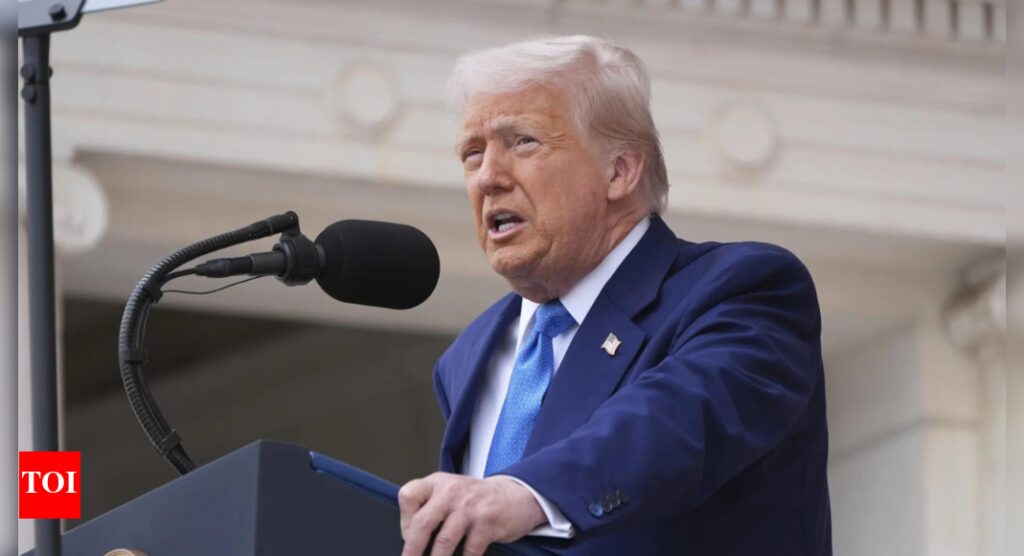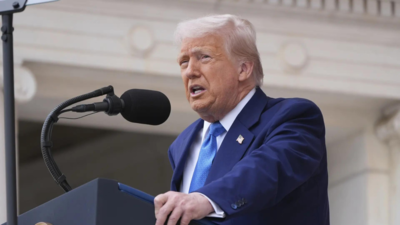Trump used trade for India-Pakistan ceasefire; constraining him could restart conflict: US

Faced with the task of defending President Donald Trump’s trade policies, top US authorities told an American court that any attempt to constrain the president’s powers to use trade and impose tariffs could – among other things – lead to another eruption of conflict between India and Pakistan, endangering the lives of millions. Reiterating Trump’s claim – rejected repeatedly by India – that he mediated between India and Pakistan, they asserted that a “tenuous” ceasefire was achieved only after the president interceded and offered both countries trading access to the US.Trump himself had earlier said that he threatened to stop trade with India and Pakistan to get them to agree to a ceasefire to bring the conflict, ignited by India’s Operation Sindoor against terrorist camps in Pakistan, to an end. Indian officials recalled external affairs minister S Jaishankar’s rejection of the claim in an interview last week in which he had said that while American leaders – just like some others from the Gulf nations – had spoken to both countries, the pause in firing on May 10 was directly negotiated by the Indian and Pakistani armies. The Indian government doesn’t use the word ceasefire.This latest endorsement of Trump’s claim was a part of signed declarations by 4 key members of the president’s cabinet – secretary of state Marco Rubio, secretary of treasury Scott Bessent, Secretary of Commerce Howard Lutnick and US Trade Representative Jamieson Lee Greer – in the US Court of International Trade that is looking into lawsuits challenging the so-called Liberation Day tariffs. A ruling by the Manhattan-based court is expected in the next few weeks.Arguing against any dilution of the presidential power to invoke US laws to impose tariffs on foreign nations – and its likely impact on use of economic instruments for strategic effect – Lutnick cited the example of the military conflict between “nuclear powers” India and Pakistan and the ceasefire reached subsequently. “This ceasefire was only achieved after President Trump interceded and offered both nations trading access with the United States to avert a full-scale war. An adverse ruling that constrains presidential power in this case could lead India and Pakistan to question the validity of President Trump’s offer, threatening the security of an entire region and the lives of millions,’’ said the Commerce Secretary, adding that an adverse ruling will also jeopardise vital trade agreements and allow for Chinese aggression at a time of strategic competition. Lutnick also stressed that the US had been able to reach a 90-day agreement with Beijing for reduction in Chinese tariffs on US exports because of Trump’s use of higher tariffs. India is currently negotiating with the US its own bilateral trade agreement to help address the US trade deficit, with Trump claiming that India offered US “a deal, basically zero tariffs”.Rubio argued in his own declaration that any adverse ruling will cause significant and irreparable harm to the US foreign policy and national security, while threatening broader US strategic interests globally. According to Rubio, any dilution of the presidential power to invoke the International Emergency Economic Powers Act (IEEPA) to impose tariffs may encourage foreign powers to slap retaliatory tariffs on the US. He stated that it was the threat of additional tariffs from the Trump administration under the IEEPA that had deterred countries from retaliating.







